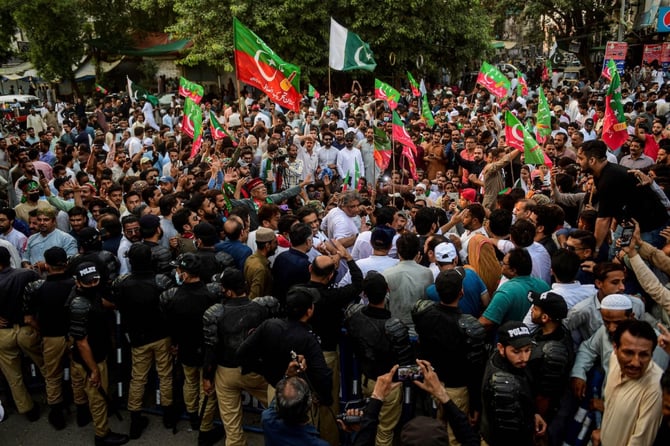Political Turmoil in Pakistan Threatens Economic Stability
Pakistan has been torn by unrest since former Prime Minister Imran Khan was arrested earlier this week, complicating efforts to secure a financial lifeline from the IMF that promised to alleviate the country's worsening economic crisis.
Indeed, the country is gearing up for an extended period of economic trouble. The Pakistani rupee has depreciated sharply and foreign exchange reserves are dwindling. Meanwhile, GDP growth has slowed dramatically, and inflation is skyrocketing.
The Asian country, with a population of 220 million, is now struggling to import such essential products as foodstuffs, leading to deadly stampedes at distribution centers. Analysts even fear the country could default on its debt.
Khan’s arrest has unleashed an outpouring of anger. Supporters have stormed buildings and clashed with security forces. An IMF spokesperson has said the organization is in detailed negotiations with the country for a $6.5 billion assistance program. However, some investors are doubtful Pakistan and the IMF can reach an agreement with so much political uncertainty around.
Indeed, the country is gearing up for an extended period of economic trouble. The Pakistani rupee has depreciated sharply and foreign exchange reserves are dwindling. Meanwhile, GDP growth has slowed dramatically, and inflation is skyrocketing.
The Asian country, with a population of 220 million, is now struggling to import such essential products as foodstuffs, leading to deadly stampedes at distribution centers. Analysts even fear the country could default on its debt.
Khan’s arrest has unleashed an outpouring of anger. Supporters have stormed buildings and clashed with security forces. An IMF spokesperson has said the organization is in detailed negotiations with the country for a $6.5 billion assistance program. However, some investors are doubtful Pakistan and the IMF can reach an agreement with so much political uncertainty around.
What does this mean for me?
Ratings agency Moody’s downgraded the country’s credit rating in late February, noting that foreign currency reserves were “far lower than necessary to cover its imports needs and external debt obligations over the immediate and medium-term.”
Inflation reached an annual rate of 36.4% in April, with the cost of food rising nearly 47% in urban areas and more than 52% in rural regions. Foreign reserves at the central bank of roughly $4.4 billion are only enough to cover about a month of prospective imports.
Ratings agency Moody’s downgraded the country’s credit rating in late February, noting that foreign currency reserves were “far lower than necessary to cover its imports needs and external debt obligations over the immediate and medium-term.”
Inflation reached an annual rate of 36.4% in April, with the cost of food rising nearly 47% in urban areas and more than 52% in rural regions. Foreign reserves at the central bank of roughly $4.4 billion are only enough to cover about a month of prospective imports.

More News
.webp)
Japan’s Rate Shift Is Rippling Through Global Bond Markets
2 weeks ago

China’s Growth Engine Stalls as Consumers and Investors Pull Back
3 weeks ago

Egypt’s Recovery Gains Traction as Household Pressure Lingers
4 weeks ago

OECD Warns AI and Tariffs Will Test the Global Economy
1 month ago

Zero Tariffs, Higher Drug Bills as US and UK Reset Pharma Trade
1 month ago

Catastrophe Bonds Go Global as Climate Risk Meets Yield Hunting
1 month ago
.webp)
Canada Shields Steel and Lumber Industries From Tariffs
1 month ago

Trump Drops Selected Tariffs in Response to Inflation Pressures
1 month ago